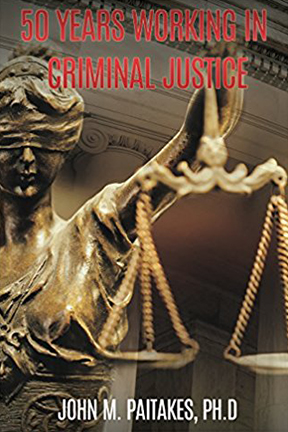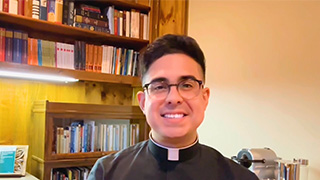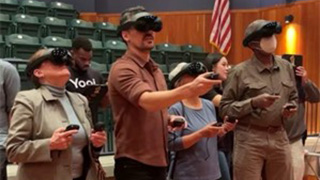Governor Appointee Shares Lessons Learned Throughout Career in Criminal Justice
Wednesday, March 7th, 2018

Fifty years later, Paitakes has established an impressive career in criminal justice. He currently sits on the New Jersey State Parole Board, to which he was appointed by Governors Chris Christie and, previously, Christine Todd Whitman. This past October, he released a book titled 50 Years Working in Criminal Justice, which offers practical and valuable advice for those looking to secure a career in the field. So how did he go from a young, inexperienced probation officer to one of the best known, most respected individuals in New Jersey criminal justice? It certainly wasn't without a few lessons learned along the way.
Make the effort to meet and connect with as many people as you can in the field you're
interested in.
Paitakes asserts that networking was an important factor in getting him to where he
is today. As the saying goes, "It's not just what you know, it's who you know." "I
knew nobody when I first got started. A chief probation officer told me I would have
to be interviewed by a judge when I was looking to become a probation officer, so
I started there and developed my own network," says Paitakes. He came to know Governor
Whitman during her time as a freeholder in Somerset County, where he served as a probation
officer for 29 years. And while he had only met Governor Christie once at a reception,
he had gotten to know a few key people, including U.S. Marshal James Plousis, while
they were all on the transition team before Governor Christie took office. "You're
supposed to recommend to the incoming governor how to improve the criminal justice
system, and Plousis and others recommended me to Christie," says Paitakes. This recommendation
ultimately led to his second appointment to the New Jersey State Parole Board.
You have many more resources at your disposal nowadays. Take advantage of them.
In the early part of his career, Paitakes leveraged an opportunity that would help
him get further academically. "The federal government offered a grant that would fund
an advanced degree as long as you stayed within the organization for a certain period
of time," he says. "So I went to Rider and earned my Master's in Counseling, and then
I went for my Ph.D. in Public Administration." With the prevalence of the internet
and social media, resources like this are even more plentiful and can be discovered
much more easily.
Learn to think critically.
A key offering of the College of Arts and Sciences, where Paitakes taught for 20 years, the ability to think critically is crucial in
the criminal justice realm. "You have to make sure you know the difference between
fact and fiction within the criminal justice system. Headlines are often not the full
story. Nationally, this is one of the greatest issues facing the country," he says.
Securing an internship is a very important step that should not be overlooked.
During his time at Seton Hall, Paitakes worked with the Career Center's Reesa Greenwald
as an internship coordinator for criminal justice. In this role, he helped students
find jobs and secure internships with the aid of the contacts he had established in
county and state agencies. With his assistance, students obtained internships with
the state police, local police, probation and parole departments and private security,
among others. "It's one thing to know the agency, but it's another to know the name.
These people get resumes from so many different schools, so when I knew personally
the director in charge, that was very helpful," says Paitakes. Often, the internship
would lead to a full time position after graduation, which Paitakes says was very
rewarding. "Competition is great in criminal justice. The degree is solid, there are
a lot of graduates in the state and the salary has increased. So you graduate with
a degree, but there are so many other graduates from all over the state. What distinguishes
our student from someone else's? That's where the internship experience can help,"
he says.
Additional tips for building a successful career in criminal justice can be found in Paitakes' book, 50 Years Working in Criminal Justice.





